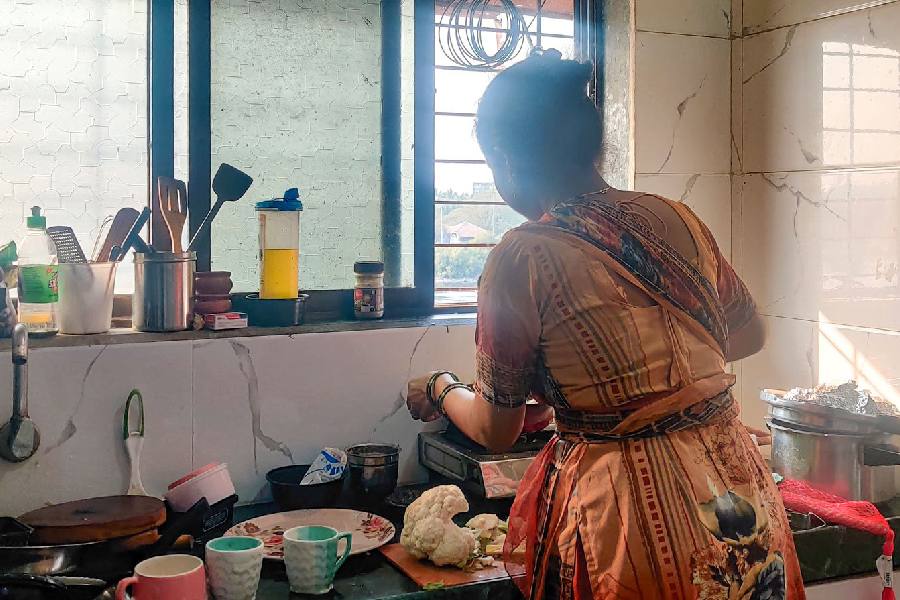Indian women bear a disproportionate burden of unpaid domestic and care work. Data show that, on average, married women in India spend over seven hours a day doing such work, regardless of their employment status, while men spend less than three hours. Incidentally, unpaid — invisible — domestic work amounts to 7.5% of India’s gross domestic product. It is thus heartening that the Dravida Munnetra Kazhagam government in Tamil Nadu is fulfilling its poll promise of recognising the labour of homemakers by paying them a monthly salary of Rs 1,000. The sum might be paltry, but the recognition of domestic labour as remunerative at the policy level is an important milestone. This is because, at present, the unpaid labour of women is, more often than not, neglected in economic analysis and policy formulation as well as in calculating the labour force and the GDP. A large part of the apathy has to do with embedded patriarchal sentiments: domestic chores are considered a woman’s duty. Another reason for this neglect is the difficulty of monetary evaluation of the services rendered. One way forward could be to follow the lead of the Supreme Court, which has, for years, been granting compensation for the unpaid work done by homemakers, albeit only after their death in motor vehicle accidents. The court calculates the value of housework by considering the ‘opportunity cost’ of a woman’s decision to work at home, the minimum wages for skilled and unskilled workers at the time, and the educational qualifications of the deceased woman. It also accounts for age and takes into account the number of dependents and inflation before arriving at a sum.
The importance of acknowledging domestic work must also be seen in light of the falling participation of women in the formal labour force since the pandemic. Less than 20% of India’s women work at paid jobs and female workforce participation has been declining in the country. This is worrying as women’s financial dependence has a significant impact on a host of overlapping issues, ranging from maternal mortality and malnutrition to child marriage, domestic violence and women’s agency. But the commodification of housework and personal care can also be a double-edged sword. Paying women for domestic work could further enhance the male sense of entitlement to shirk such chores, not to mention the imposition of an additional onus on women to perform. Worryingly, this could also lead to the creation of a culture where women are coerced to shun employment outside the home. While the idea of compensating housework is noble, it must be accompanied by simultaneous emancipatory policies in relevant spheres.











